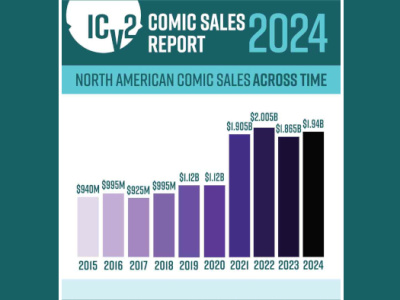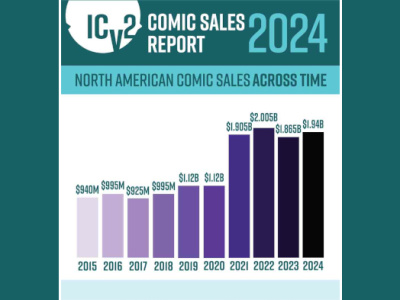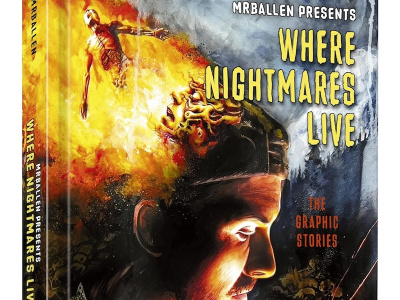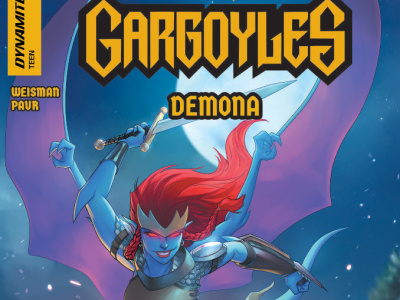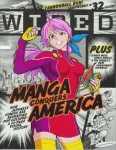
Emblazoned across Yoichiro Ono's striking cover for the November issue of Wired is 'Manga Conquers
Thompson's entertaining visual history tells the story of manga's conquest of the all-American bookstore, which interestingly enough coincides with the market dominance of the chain bookstores such as Borders, Barnes & Noble, Walden Books, etc. With visual representations of such industry figures as Viz's Seiji Horibuchi and Borders' (now Yen Press') Kurt Hassler, the story is not only a charts and graphs business article, it also conveys something of the people behind the industry.
More directly at the Wired audience is Daniel Pink's accompanying article, 'Japan, Ink,' an examination of the dojinshi phenomenon and its importance in the world of manga. Pink, who has written the first American business manga, The Adventures of Johnny Bunko (see 'Business Guru Writes Manga'), studied the manga market in Japan as a Japan Society fellow and discovered that not only was manga at the heart of the wave of Japanese culture that is sweeping across the globe, but that an underappreciated source of its vitality is the vast proliferation of amateur comics (dojinshi) in which artist/fans make free use of characters created by others -- a sort of manga equivalent of what we call 'fan fiction' here. But in Japan this 'character appropriation' is on a must vaster scale (as Pink documents in his visits to various 'comickets' or comic markets where dojinshi manga is sold) and involves much more talented creators -- in fact the world of dojinshi is the training ground for future manga artists (Clamp began as a dojinshi circle) as well as an excellent tool for publishers to see which properties are hot (the switch of a number of fan circles from working with Prince of Tennis to Bleach a few years ago was a perfect, and very early, indicator of Bleach's rising popularity).
Amateur creators make fast and loose with copyrighted characters in
Pink really connects the dojinshi world with the Wired world when he cites Stanford law professor Lawrence Lessig's concept of the conflict between 'read only' culture and 'read/write' culture. As Pink points out: 'Our intellectual property rules were crafted for a read-only culture.' Witness the fact that comics with Disney characters in compromising positions were called Tijuana Bibles for a reason -- they couldn't be published here. The whole thrust of modern copyright legislation has been to extend and protect those IP rights, but as Pink points out, the rigid adherence to IP strictures in the U.S. rules out the potential benefits of a 'remix' culture of the type that has greatly benefited Japanese manga.



